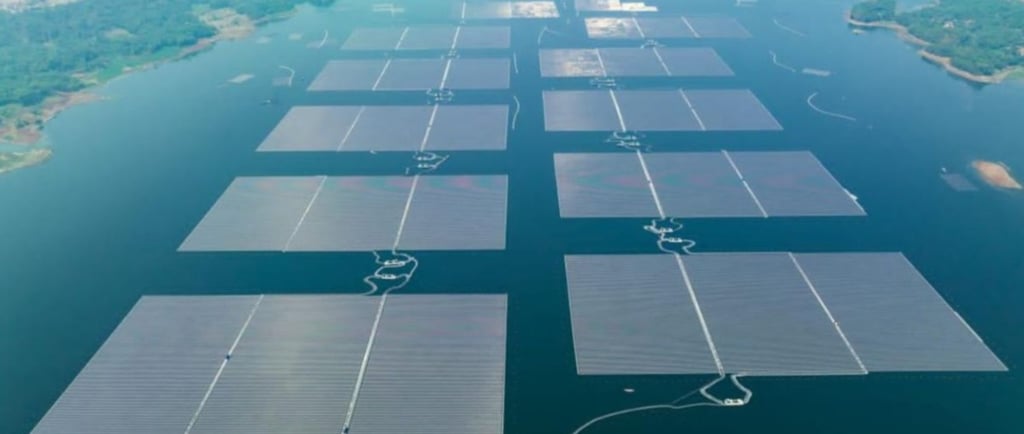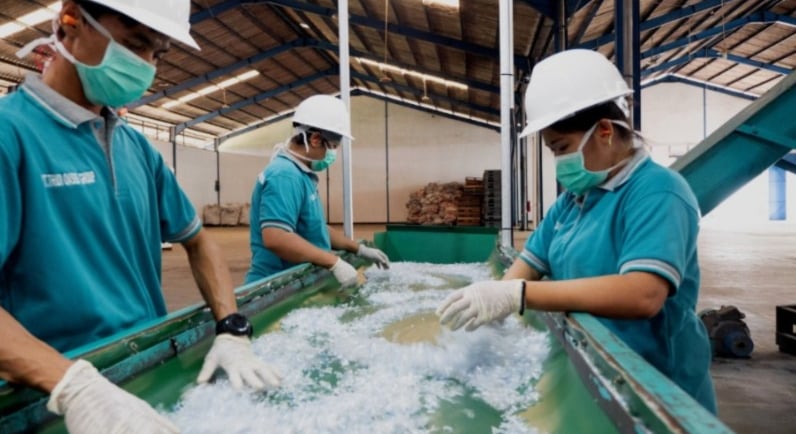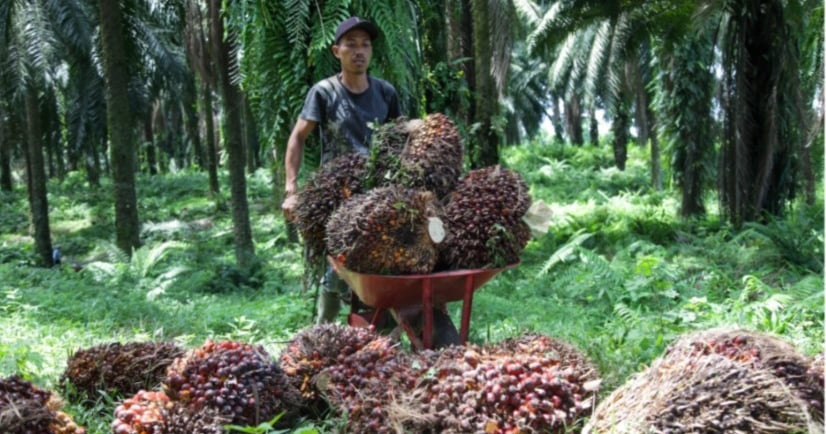Power, Plastics, and Palm Oil
GREEN TECHNOLOGY AND BREAKTHROUGHS
Kayla Aida Daniswara
4/29/20253 min read


Indonesia is rising in green innovations that promise to reshape its energy landscape and tackle the growing waste crisis in the country. Out of many of those innovations, the Cirata floating solar power plant, the Tridi Oasis Group, and the increase in biodiesel biofuels are projects to tackle three main challenges in the country: Harnessing solar energy, plastic waste, and biofuel energy. Interested in knowing more about these recent innovations? Continue reading through this short article.
Harnessing The Power of Water and Sun
PLTS Terapung Cirata (Photo: Dok. PLN)
Among Indonesia's newest great green innovation is the Cirata floating PV power plant, located on the Cirata Reservoir in the province of West Java. The power plant's capacity is 145 megawatts, enough to power 50,000 households so it is Southeast Asia's largest floating solar power plant. The plant is a collaboration between the Indonesia state electricity utility company PLN and a renewable energy company from the United Arab Emirates, Masdar as the lead investor. The power plant will reduce 214,000 tons of carbon dioxide annually thus assisting Indonesia in achieving its ambition of generating 23% of its energy from renewable resources by 2025.
Tackling Plastic Waste


Tridi Oasis Group - Recycled PET Flakes Supplier (Photo: Tridi Oasis Group)
Millions of tons of plastic waste produced each year is clear proof that Indonesia ranks among the top plastic wastes contributors globally. Tridi Oasis, a startup located in Banten, is trying to promote recycling of common low-value plastics, such as single-use bags and drinking straws. Tridi Oasis bases off a form of chemical recycling where plastics are subjected to high temperatures or chemical reactions to convert them into refuse-derived fuel (RDF). This alternative energy source can be utilized by several industries like cement manufacturing to reduce their dependence on fossil fuel. This start-up is in collaboration with communities for waste collection where they will distribute food vouchers to the collectors of plastic waste. Although RDF production and processing are currently costlier than coal-based energy, this is a more feasible and sustainable approach to solving one of Indonesia's major problems-plastic pollution, converting waste into valuable energy resources, and providing jobs for people in the local communities.
Powering the Future with Palm Oils:


A worker collects palm oil seeds at the Namorambe plantation in Deli Serdang, North Sumatra 12 May, 2022. Photo: Andi/AFP
Indonesia is the world's biggest palm oil producer, which is utilized in food, beauty products, and, progressively, biofuels. Indonesia's administration has ambitious targets to increase the obligatory biodiesel mix in fuel to 40% by 2025 from 35%. The policy is aimed at increasing local consumption of palm oil-based biofuels to 14 million metric tons annually to reduce excessive dependence on fossil fuels and to support the domestic palm oil sector. However, Indonesia also faces some problems like aging palm plantations and declining yields that could impact the production capacity. To this, the government is conducting replanting programs and mulling subsidies to cover the difference between the price of palm oil-based fuel and regular diesel. Despite these issues, this program is a huge step towards achieving Indonesia's energy and environmental goals with plans to increase the biodiesel mix to 50% by 2028.
Indonesia’s green journey is still a long path ahead with modifications and future innovations rising up moment by moment. These three main creations are just the beginning of what Indonesian environmental activists have in mind to shift the country to a greener, more sustainable future.
Bibliography
“Biofuel in Indonesia.” 2018. Stanford.edu. 2018. http://large.stanford.edu/courses/2018/ph240/langner2/.
“Cirata Floating Photovoltaic Power Plant.” n.d. Power Technology. https://www.power-technology.com/projects/cirata-floating-photovoltaic-power-plant/.
detikcom, Tim. n.d. “Serba-Serbi PLTS Terapung Cirata: Terbesar Se-Asia Tenggara, Ketiga Di Dunia.” Detiknews. https://news.detik.com/berita/d-7034844/serba-serbi-plts-terapung-cirata-terbesar-se-asia-tenggara-ketiga-di-dunia.
“Indonesia Sets Sights on Expanding Palm Oil Production for Biofuel Growth.” 2024. UkrAgroConsult - World-Class Agricultural Consulting. Ukragroconsult. November 12, 2024. https://ukragroconsult.com/en/news/indonesia-sets-sights-on-expanding-palm-oil-production-for-biofuel-growth/.
“Indonesia Targets Three-Year Timeline for 50% Biodiesel Mandate.” 2024. S&P Global Commodity Insights. 2024. https://www.spglobal.com/commodity-insights/en/news-research/latest-news/agriculture/110724-indonesia-targets-three-year-timeline-for-50-biodiesel-mandate.
Juwita, Ruth Dea. 2023. “Recycling Start-up Tackles Industry Headache of Low-Value Plastics.” Asianews.network. 2023. https://asianews.network/recycling-start-up-tackles-industry-headache-of-low-value-plastics/.
Oon, Amanda. 2023. “Indonesia’s New Palm Oil Biodiesel Programme Profits Major Corporations at the Expense of Smallholders, Says Union.” Southeast Asia Globe. February 8, 2023. https://southeastasiaglobe.com/indonesian-corporations-biodiesel-subsidies/.
“Start-up in Indonesia Is Turning Low-Value Plastics into Fossil Fuels.” 2023. Waste360.com. 2023. https://www.waste360.com/waste-recycling/a-start-up-in-indonesia-is-turning-low-value-plastics-into-fossil-fuels.
